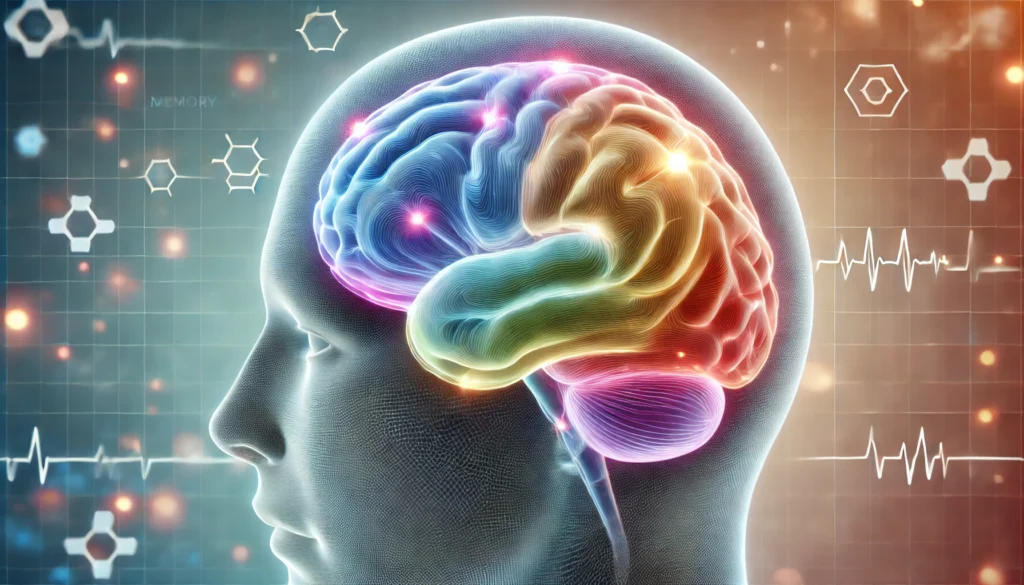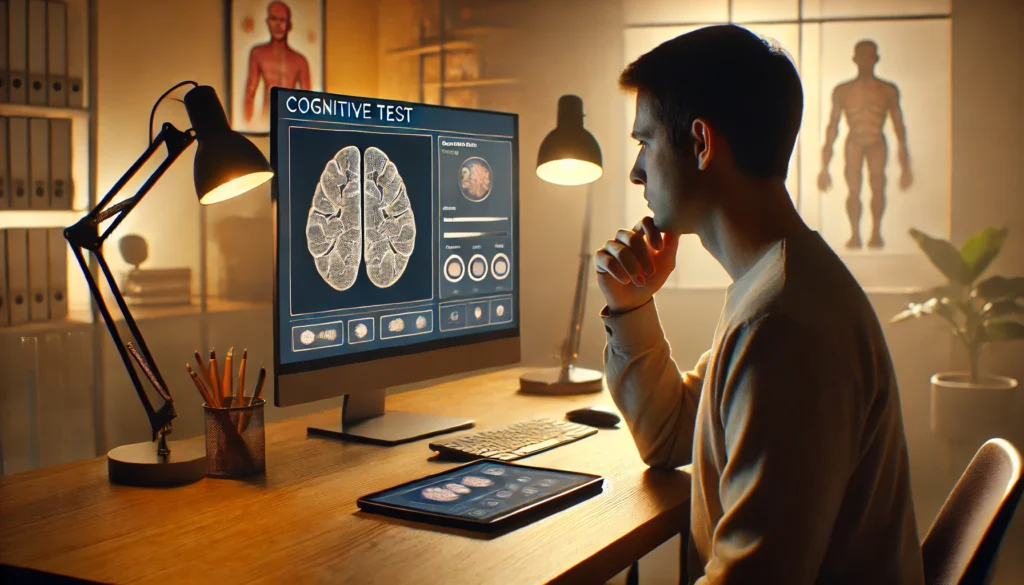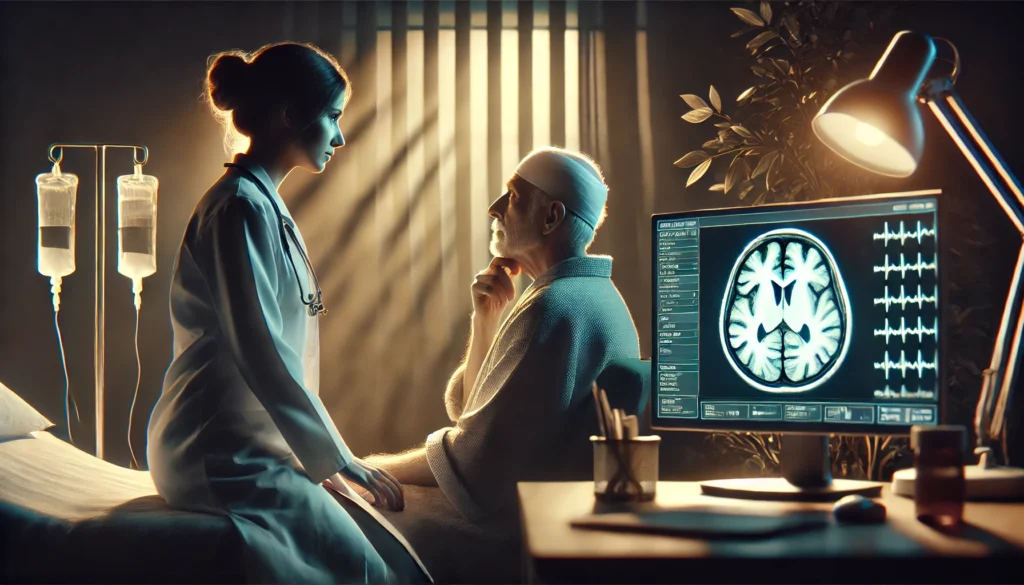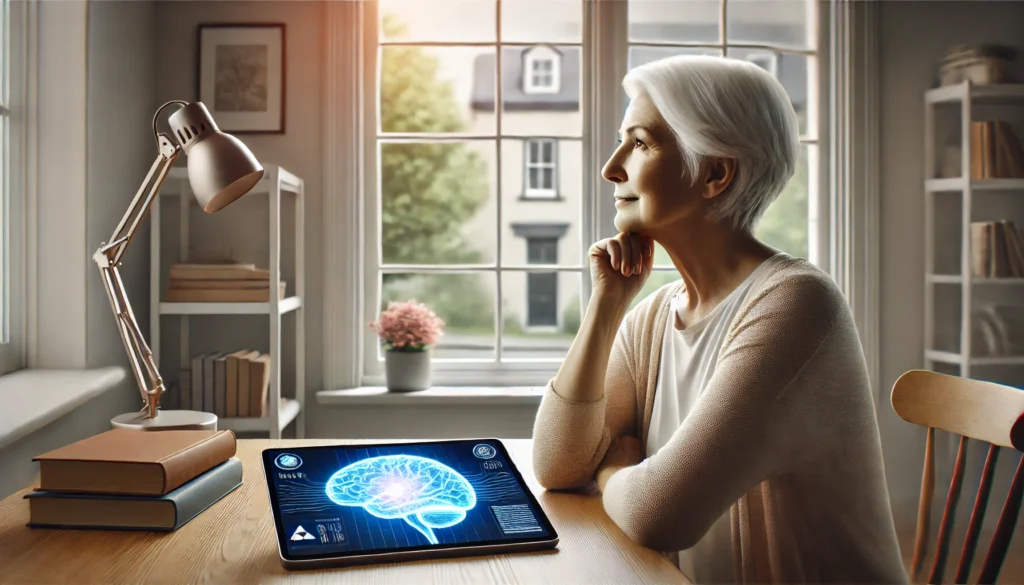Introduction
In an age of digital diagnostics and precision health tools, the ability to detect cognitive decline early has become increasingly crucial. Millions of individuals across the globe are affected by cognitive impairments that often go unnoticed until significant mental decline disrupts their daily lives. Whether it’s memory lapses, attention deficits, or subtle shifts in decision-making ability, early symptoms of cognitive dysfunction are frequently dismissed as stress-related or age-appropriate. This delay in recognition can have long-lasting implications for treatment and quality of life. Fortunately, advancements in digital health have introduced tools like the cognitive symptom checker, offering a user-friendly method to assess brain health in real time. By leveraging the science of medical cognition, individuals, caregivers, and clinicians can gain a deeper understanding of neurological health before serious cognitive disorders develop.
You may also like: How to Stop Cognitive Decline: Science-Backed Steps for Prevention and Brain Longevity
Cognitive symptom checkers are not designed to diagnose complex brain diseases outright, but they offer valuable initial insights that prompt further professional evaluation. These tools represent a convergence of artificial intelligence, neurology, and user-centric design, empowering users to screen themselves for red flags in cognitive function. More importantly, they play a significant role in advancing health literacy around medical cognition—how the brain processes, stores, retrieves, and applies information in daily life. In this article, we delve into the intricate relationship between early symptom detection and medical cognition, explore how digital symptom checkers work, and provide expert-backed guidance on when and how to use them effectively.

Understanding Medical Cognition: The Brain’s Diagnostic Landscape
Medical cognition refers to the clinical understanding of how cognitive functions operate and fail within the context of health and disease. Unlike general cognition, which deals with everyday mental abilities like memory, focus, and comprehension, medical cognition focuses on how these abilities change due to neurological, psychological, or physiological factors. It encompasses everything from mild cognitive impairments and brain fog to severe degenerative disorders like Alzheimer’s disease, Parkinson’s, or frontotemporal dementia.
One of the challenges in detecting cognitive decline lies in its subtle onset. Individuals often chalk up early symptoms to aging, sleep deprivation, or emotional stress. But medical cognition teaches us that even slight changes in how a person processes information can be early indicators of a deeper issue. Monitoring these shifts can provide essential data for clinicians and caregivers who may otherwise overlook or misattribute cognitive red flags. Tools that quantify medical cognition are crucial in bridging the gap between patient-reported symptoms and clinical diagnosis.
Cognitive dysfunctions may stem from a variety of root causes—genetic predispositions, chronic illnesses like diabetes or hypertension, traumatic brain injuries, substance abuse, or nutritional deficiencies. The brain is sensitive to both structural and metabolic changes, and medical cognition helps map how these changes influence functional outcomes. Thus, understanding medical cognition equips individuals to better interpret the results from a cognitive symptom checker and seek the right kind of help at the right time.

What Is a Cognitive Symptom Checker and How Does It Work?
A cognitive symptom checker is an online or app-based tool designed to help individuals evaluate their current cognitive state based on self-reported symptoms. These platforms generally ask a series of targeted questions related to memory, focus, speech, motor coordination, problem-solving ability, and emotional regulation. The goal is not to replace professional diagnosis but to act as a screening gateway for deeper neurological assessments.
Modern symptom checkers are often powered by algorithms trained on vast databases of neurological and psychiatric profiles. They assess user responses and generate probability-based feedback that estimates whether cognitive symptoms fall within the realm of normal fluctuations or warrant clinical attention. Some systems also offer insights into what type of healthcare provider the user should consult, be it a neurologist, psychiatrist, or general practitioner.
The reliability of a cognitive symptom checker depends on several factors, including the quality of its underlying database, the scientific validity of its questions, and its alignment with established principles in medical cognition. For best results, users must answer the questions truthfully and in context. Many checkers even allow repeated use to track changes over time, making them valuable for long-term monitoring, especially in populations at risk for cognitive decline.

Medical Cognition and Early Detection: Why Timing Matters
When it comes to brain health, timing is everything. The earlier cognitive changes are identified, the more effective interventions can be. Medical cognition research has shown that subtle impairments in memory, executive function, or verbal fluency often precede clinical diagnosis by several years. In diseases like Alzheimer’s, neurodegeneration begins well before visible symptoms emerge.
This is where the cognitive symptom checker proves its worth. It offers an early window into potential dysfunctions by mapping subjective experiences to medically recognized symptoms. For example, if a user reports frequent forgetfulness, difficulties with multitasking, or confusion in familiar settings, the tool might flag early warning signs of mild cognitive impairment (MCI). Such early alerts can lead to cognitive screenings in clinical settings, timely lifestyle changes, or even pharmacological interventions that can slow disease progression.
In addition to individual benefits, early detection also supports public health efforts. Cognitive disorders impose a heavy socioeconomic burden, especially in aging populations. By using medical cognition to understand symptom patterns, and deploying symptom checkers at scale, healthcare systems can prioritize high-risk individuals and allocate resources more efficiently.
When to Use a Cognitive Symptom Checker
While these tools are freely accessible, using a cognitive symptom checker requires thoughtful consideration. It’s best used when individuals notice consistent cognitive challenges—trouble remembering names, losing train of thought mid-sentence, or experiencing confusion during routine tasks. These issues may not always be serious, but when persistent, they warrant attention.
Medical cognition teaches us that cognition is influenced by many transient variables like stress, sleep deprivation, and medication side effects. A one-time lapse in memory is not cause for alarm. However, a pattern of cognitive difficulties—especially those that interfere with daily functioning—is reason enough to engage a symptom checker. It’s also a valuable resource for family members or caregivers who observe changes in a loved one’s behavior but are unsure how to interpret them.
Repeated use can help track symptom trajectories over time. If a person completes the symptom checker monthly and notices worsening responses, that data becomes a powerful motivator for seeking medical care. Consistent use enhances pattern recognition, which is at the heart of both medical cognition and AI-based diagnostics.
What to Expect from the Results
After completing a cognitive symptom checker, users typically receive a report indicating their symptom profile and a general risk level—often categorized as low, moderate, or high. Some advanced tools also provide possible causes for the symptoms, such as age-related changes, stress, medication interactions, or underlying neurological conditions.
These results are not a diagnosis. Instead, they serve as a guide for further evaluation. For instance, someone flagged as moderate risk might be advised to schedule a neurocognitive assessment or a consultation with a neurologist. The data may also be useful in preparing for a clinical visit, as it helps structure the conversation around observed symptoms and their impact.
Medical cognition provides the framework to interpret these results correctly. A moderate score doesn’t mean disease is imminent, but it may indicate that certain brain functions are under stress. Similarly, a low-risk score doesn’t imply invulnerability—it simply means that current symptoms fall within normal parameters. Users are encouraged to take these outcomes as directional feedback rather than definitive conclusions.
Strengths and Limitations of Symptom Checkers
The increasing use of digital tools for self-assessment is a double-edged sword. While cognitive symptom checkers can democratize access to brain health screening, they also come with caveats. One of the strengths is their ability to provide immediate, low-cost feedback that raises awareness and motivates early intervention. They are also particularly beneficial in remote or underserved areas where access to specialists is limited.
However, these tools can produce false positives or negatives. A person might overreport symptoms due to anxiety or underreport due to denial or cognitive bias. Additionally, some symptom checkers are built with limited input from neurological experts, reducing their reliability. That’s why the role of medical cognition is crucial—it helps establish the theoretical and clinical basis for which symptoms matter and how they should be weighted in the analysis.
Another limitation lies in the overreliance on self-assessment. Cognitive impairments themselves may affect one’s ability to accurately report symptoms. This is why caregiver input or observational data can be just as valuable in symptom evaluation. A robust cognitive symptom checker ideally integrates both self-reporting and external observations to enhance accuracy.

The Role of AI and Machine Learning in Cognitive Symptom Tools
Artificial intelligence is at the core of most advanced cognitive symptom checkers. By analyzing massive datasets of symptom reports, clinical outcomes, and cognitive test scores, AI models learn to identify patterns associated with various stages of cognitive decline. The more these models are exposed to real-world data, the better they become at predicting risk levels with minimal input.
Machine learning enhances personalization. A symptom checker that adapts its questions based on age, health history, or previous responses provides a more tailored experience. Medical cognition supports this personalization by emphasizing that cognitive symptoms manifest differently depending on context. A 30-year-old with ADHD might report similar symptoms to a 70-year-old with early dementia, but the underlying causes and appropriate responses differ significantly.
Natural language processing also allows these tools to understand free-text input, making them more flexible and human-centric. Some checkers even integrate with wearable devices to track physiological metrics like sleep, heart rate variability, and activity—all of which impact cognitive performance. These innovations not only enhance usability but align with the broader goals of predictive and preventive medicine.
How Medical Professionals View Symptom Checkers
Medical professionals have mixed but increasingly favorable views on the use of cognitive symptom checkers. While they caution against self-diagnosis, many agree that these tools play an important role in early detection and patient education. Neurologists, in particular, see value in tools that encourage patients to articulate their cognitive concerns before symptoms become severe.
Medical cognition informs how practitioners interpret patient responses. A doctor reviewing symptom checker results can cross-reference reported issues with clinical tests like the Montreal Cognitive Assessment (MoCA) or Mini-Mental State Exam (MMSE). This creates a layered diagnostic process where digital tools support, rather than replace, clinical judgment.
Furthermore, cognitive symptom checkers can streamline the diagnostic journey by identifying red flags early. This allows specialists to prioritize cases and allocate diagnostic resources more efficiently. As telehealth becomes more prevalent, these tools also serve as effective screening methods in virtual care models.
Ethical Considerations and Data Privacy
Any discussion of digital health tools must address ethics and data security. Cognitive symptom checkers often collect sensitive information related to mental health, family history, and cognitive behaviors. Ensuring that this data is encrypted, anonymized, and stored securely is critical to maintaining user trust.
Medical cognition extends to ethical practice. It emphasizes not only what we understand about the brain, but how we use that knowledge responsibly. Symptom checkers must be transparent about their limitations, sources of data, and the non-diagnostic nature of their feedback. Users should also be given the option to opt out of data sharing and be informed of how their information will be used.
Bias in algorithms is another concern. AI models trained predominantly on data from specific populations may produce inaccurate results for underrepresented groups. Developers must ensure diversity in training datasets and continuous auditing to avoid reinforcing systemic biases.
Cognitive Health as a Lifelong Priority
Cognitive health is not just a concern for older adults. In today’s fast-paced, information-saturated world, even younger individuals face cognitive stress from screen time, multitasking, poor sleep, and mental fatigue. By integrating tools like cognitive symptom checkers into regular health routines, individuals of all ages can stay more attuned to their mental well-being.
Medical cognition encourages us to view brain health dynamically—as something that can be nurtured, tracked, and optimized over time. Whether you’re a student experiencing attention difficulties, a working professional battling burnout, or a retiree concerned about memory loss, cognitive symptom checkers offer a meaningful first step toward understanding and protecting your brain function.
Ultimately, these tools are not just about early detection; they’re about proactive management. They invite users into a dialogue with their own cognitive experiences, empowering them with insights that lead to informed action. The future of brain health lies in combining self-awareness, scientific rigor, and compassionate care—and cognitive symptom checkers are a compelling entry point into that future.
Frequently Asked Questions
1. What is medical cognition and how does it differ from general cognition?
Medical cognition refers to the scientific understanding of how mental processes function in relation to health and disease. Unlike general cognition, which includes day-to-day activities like learning and reasoning, medical cognition focuses on diagnosing and managing impairments such as memory loss, attention deficits, or decision-making issues linked to neurological or psychiatric conditions. It helps clinicians detect early signs of disorders by interpreting how these mental processes deviate from normal functioning. This field also integrates neuroscience, psychology, and medicine to develop diagnostic tools, including cognitive symptom checkers. By applying medical cognition, professionals can assess whether symptoms stem from normal variability or signal a more serious cognitive decline.
2. How reliable is a cognitive symptom checker for detecting brain health issues?
A cognitive symptom checker is a valuable preliminary tool for identifying potential cognitive concerns, but it is not a substitute for clinical diagnosis. Its reliability depends on the quality of its algorithm, the comprehensiveness of its questions, and how accurately users report symptoms. While advanced platforms incorporate elements of medical cognition to enhance precision, they may still produce false positives or negatives. Their primary function is to raise awareness and prompt further evaluation rather than deliver a definitive diagnosis. Used correctly, they can support early detection and timely medical intervention.
3. Who should consider using a cognitive symptom checker?
Anyone who notices persistent changes in memory, focus, speech, or decision-making should consider using a cognitive symptom checker. This includes older adults, individuals with a family history of cognitive disorders, or people experiencing prolonged stress, sleep issues, or mental fog. Caregivers concerned about a loved one’s cognitive behavior may also find these tools helpful. Even younger adults can benefit, especially if they are under high mental strain. Regular use can help establish baselines, making it easier to detect deviations over time and guide appropriate action.
4. How does medical cognition support the development of digital health tools?
Medical cognition forms the foundation for many digital diagnostic tools by providing the framework for identifying, measuring, and interpreting cognitive symptoms. It guides how questions are structured in a symptom checker and determines which symptom patterns are clinically significant. By incorporating insights from neuroscience and clinical psychology, developers can create more accurate, personalized, and ethically responsible tools. As medical cognition evolves, so too will the sophistication of cognitive symptom checkers, making them even more effective in early detection and self-monitoring.
5. Can cognitive symptom checkers be used for long-term monitoring?
Yes, cognitive symptom checkers are particularly useful for tracking cognitive performance over time. When used regularly, they help establish a personal cognitive profile and detect any gradual changes that might otherwise go unnoticed. Long-term data can be shared with healthcare providers to support clinical evaluations. Medical cognition emphasizes the importance of recognizing patterns in symptom development, and regular use of a symptom checker provides a non-invasive way to observe those patterns in action.
6. What are some limitations of using a cognitive symptom checker?
While helpful, cognitive symptom checkers have limitations. They rely on self-reporting, which may be influenced by mood, stress, or even the cognitive impairments themselves. Not all tools are created equal—some lack scientific validation or fail to consider individual differences in age, culture, or education. Additionally, these tools do not account for the full range of cognitive disorders, nor can they distinguish between temporary and chronic symptoms without further testing. Despite these limitations, they remain an accessible first step in a broader diagnostic process informed by medical cognition.
7. How do professionals interpret results from a symptom checker?
Clinicians use results from cognitive symptom checkers as supplementary data during initial consultations. These results provide a starting point for deeper assessments, helping guide further testing like neuropsychological evaluations or imaging studies. Medical cognition informs how these results are interpreted—symptom patterns, severity, and duration all play a role in distinguishing between normal cognitive fluctuations and pathological changes. The data can also help streamline appointments, enabling more focused and effective medical conversations.
8. Are there privacy concerns when using these tools?
Yes, data privacy is a key concern when using any digital health platform. Cognitive symptom checkers collect sensitive information, and it’s important that this data is encrypted, anonymized, and stored according to health data protection standards. Users should only use reputable platforms that are transparent about how data is handled. Informed consent and data usage disclosures are essential components of ethical practice, and users should have full control over what happens to their information after use.
9. How do cognitive symptom checkers compare to traditional screening tools?
Cognitive symptom checkers offer convenience and immediacy but lack the depth and rigor of clinical tools like the MoCA or MMSE. Traditional tools are administered and interpreted by professionals trained in medical cognition, allowing for greater accuracy and contextual understanding. However, digital tools excel in accessibility, allowing for early screening and awareness even before clinical symptoms are fully apparent. Used together, they create a robust diagnostic pathway from self-assessment to professional evaluation.
10. Can using a symptom checker improve health outcomes?
While a symptom checker cannot treat or diagnose cognitive disorders, its ability to prompt early recognition and timely intervention can significantly improve health outcomes. Early detection enables lifestyle changes, cognitive therapies, or medications that may slow progression. Additionally, increased self-awareness leads to better health-seeking behavior and adherence to care plans. By aligning with principles of medical cognition, these tools empower users to take proactive steps toward preserving and enhancing their brain health.

Conclusion
The digital revolution in healthcare has opened new avenues for understanding and monitoring cognitive function. Tools like the cognitive symptom checker represent a critical intersection between user-friendly technology and the sophisticated science of medical cognition. They offer a practical, accessible, and insightful way to recognize early signs of cognitive impairment and encourage timely medical engagement. By understanding how medical cognition works and applying it through these digital platforms, individuals can gain a clearer picture of their mental health trajectory.
While not a replacement for professional diagnosis, cognitive symptom checkers serve as an essential front line in brain health awareness. They help demystify the early signs of cognitive decline, reduce stigma, and empower users to become active participants in their cognitive well-being. In a world where early detection is often the difference between successful management and irreversible decline, these tools are not just helpful—they’re essential. Through regular use, informed interpretation, and collaboration with healthcare providers, cognitive symptom checkers can play a pivotal role in safeguarding mental function across the lifespan.
Was this article helpful? Don’t let it stop with you. Share it right now with someone who needs to see it—whether it’s a friend, a colleague, or your whole network. And if staying ahead on this topic matters to you, subscribe to this publication for the most up-to-date information. You’ll get the latest insights delivered straight to you—no searching, no missing out.
Further Reading:
What Is the Alzheimer Disease? Understanding Early Symptoms, Misconceptions, and Cognitive Effects



